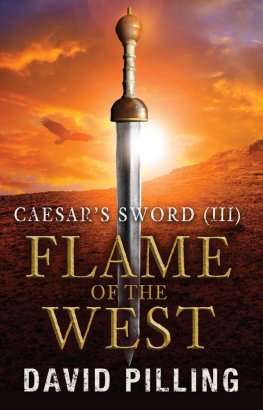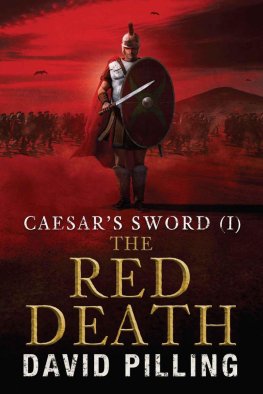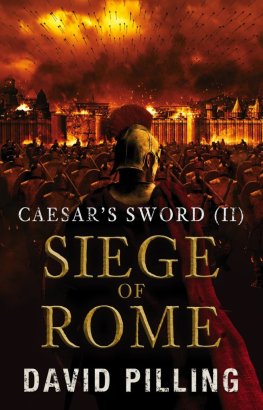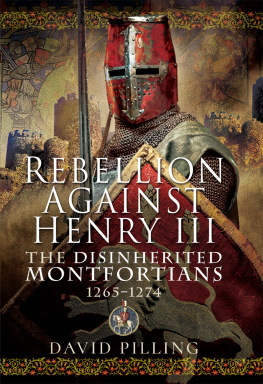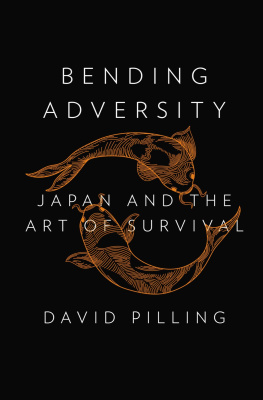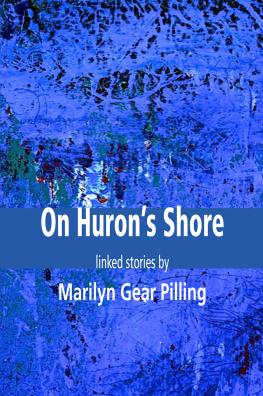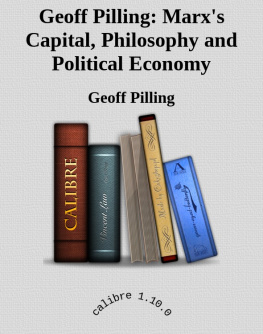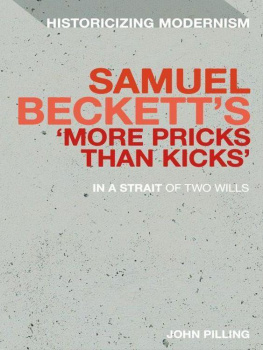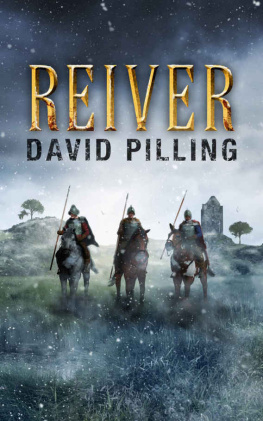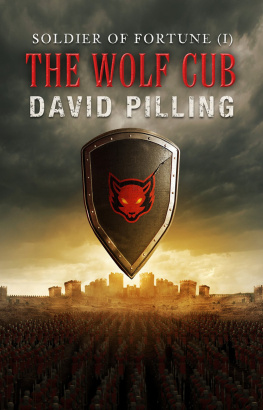David Pilling - Flame of the West
Here you can read online David Pilling - Flame of the West full text of the book (entire story) in english for free. Download pdf and epub, get meaning, cover and reviews about this ebook. year: 2014, genre: Adventure. Description of the work, (preface) as well as reviews are available. Best literature library LitArk.com created for fans of good reading and offers a wide selection of genres:
Romance novel
Science fiction
Adventure
Detective
Science
History
Home and family
Prose
Art
Politics
Computer
Non-fiction
Religion
Business
Children
Humor
Choose a favorite category and find really read worthwhile books. Enjoy immersion in the world of imagination, feel the emotions of the characters or learn something new for yourself, make an fascinating discovery.
- Book:Flame of the West
- Author:
- Genre:
- Year:2014
- Rating:4 / 5
- Favourites:Add to favourites
- Your mark:
- 80
- 1
- 2
- 3
- 4
- 5
Flame of the West: summary, description and annotation
We offer to read an annotation, description, summary or preface (depends on what the author of the book "Flame of the West" wrote himself). If you haven't found the necessary information about the book — write in the comments, we will try to find it.
Flame of the West — read online for free the complete book (whole text) full work
Below is the text of the book, divided by pages. System saving the place of the last page read, allows you to conveniently read the book "Flame of the West" online for free, without having to search again every time where you left off. Put a bookmark, and you can go to the page where you finished reading at any time.
Font size:
Interval:
Bookmark:
David Pilling
Flame of the West
1.
Abbey of Rhuys, Brittany, 571 AD
No father should have to bear the loss of his son. Of all the cruelties and hardships God saw fit to heap upon my head, this was the worst.
Abbot Gildas, who knows something of my history, sometimes asks to join me in praying for the soul of Arthur. He does not know I pray for my sons wellbeing, not his soul.
I last set eyes on him almost twenty years ago, near the banks of the Po in northern Italy. If I shut my eyes, I can picture him clearly: a tall, proud, soldierly figure, with his mothers wiry frame and the flaming red hair of his royal British ancestors. He rode as well as any Scythian or Hunnish horse-archer, and Caledfwlch gleamed in his hand.
Go! I screamed, pointing my spear west, towards the distant border of Liguria, go now, or bear a fathers curse!
Arthur might have disobeyed, for he was ever a strong-willed brute, but he carried a sacred charge. Caesars sword, wielded by his famous ancestor (and namesake) at Mount Badon, could not fall into the hands of our enemies. I had made him swear an oath to that effect, and taught him to keep his oaths.
Our eyes met for the last time. His were green, so much like his mothers, and blazing with fury. It was against his proud nature to turn and run, but there was no help for it.
The thunder of hoofs sounded behind us. I twisted my neck and saw the dark shapes of horsemen thundering across the plain to the south. A dozen at least, Frankish lancers in gleaming mail and white cloaks.
They had been pursuing us for days, remorseless as hounds after a couple of fleeing deer. I tried every trick I knew to evade them, but the Frankish captain was no fool, and saw through all my deceptions.
I glanced back at Arthur. To my relief, he had obeyed my last instruction, and was riding away to the west at the gallop. We had fled with remounts, and ridden the first pair of horses to exhaustion, but his fresh mount would carry him over the border to safety.
He urged his horse up to the crest of a little ridge, and there halted and wheeled her about. For a moment his superb cavalry figure was silhouetted against a backdrop of rolling hills and the light of the rising sun, Caledfwlch raised high in salute. The length of the blade rippled with silvery light, as it had done in the caves on the shore of Amorica, so many years ago.
Virtus et fortitudo! I heard him shout: Courage and strength, the old battle-cry of the legions. My eyes misted as I recalled the first time Arthur heard it, chanted by a phalanx of Isaurian spearmen marching on parade along the Mese in Constantinople.
Then he was gone, vanished behind the ridge, and the light of Caledfwlch snuffed out.
I dragged my horse around to face the Franks. They were coming on at the charge, triumphant war-shouts tearing through the still air. It was Caledfwlch they wanted, not me, but I would die rather than let them slay my son and deliver Caesars sword into the hands of a barbarian king.
Blinking away tears, I urged my horse straight at the Franks, aiming for their captain. He was a typically burly officer, his auburn hair twisted into pigtails, face partially hidden behind the nose-guard and hinged cheek-pieces of an elaborate golden helm.
Belisarius! I shouted as I surged in for the kill, the name of my old chief rising in my throat. I had not shouted his name in many years, and would never see or serve under him again. Despite everything, all the bitterness and disappointment he had caused me, I still honoured the man.
The Franks spread out to encircle me. I ignored them and cast my spear at their leader. It was a good throw, and pierced his right shoulder, just above where a silver brooch held his cloak in place. The impact made him jerk in the saddle, and his horse came to grief, her legs tangling and folding up under her.
His men screeched in rage and closed in around me. I dragged back on my reins with one hand and reached for my spatha a poor substitute for Caledfwlch with the other.
A spear clanged against the shield strapped to my left arm. I bit back a spurt of pain, tore the blade free and turned to face the nearest Frank as he came plunging at me, axe raised high.
At fifty-one, my reflexes had lost their edge. I tried to lean sharply to my left to avoid the blow, but was too slow. The edge of his axe slammed into my breast. It split the mail, drove the breath from my body, and hurled me backwards out of the saddle.
Red blotches flashed before my eyes. The world spun crazily. My horse bucked and shrieked in panic. I landed with a jarring thump on my back.
I tried to rise, but a dark shadow fell over me, and flailing hoofs crunched into my ribs, my pelvis, my spine. One of the Franks had ridden his horse straight over me.
Pain, and numbing despair. I lay curled like a worm on the end of a hook, unable to move, scarcely able to breathe. Waiting for the blow that would finish me, and usher my shade into the next world.
It didnt come.
2.
I am ahead of my tale, and must go back some thirteen years, to the coast of Naples. There, along with Procopius and a few other companions, I saw the Roman fleet anchored in the glittering blue waters of the bay.
We had crept out of Rome, on the orders of Belisarius, to make our way through the Gothic siege lines and hence to Campania, to try and raise reinforcements from our scattered garrisons.
Procopius let out a cry of joy when he sighted the fleet. The troops from Constantinople were so long-delayed we had despaired of them ever arriving, and he was of the opinion that the Emperor Justinian had abandoned his army in Italy to its fate. Procopius always held a low opinion of Justinian, and those unfortunate enough to read his Secret History (as I have) will know how his dislike of the emperor eventually congealed into madness.
He had to swallow his bile on this occasion, and clawed at my arm in excitement as he watched the soldiers disembarking in the harbour. They were Isaurians, tough infantry from the rugged hill country near the borders of Cilicia.
Look to the south, he cried, stabbing his finger at a point further down the coast, beyond the city. I strained my eyes to see, and thought I made out a thin column of dust. Then I caught the flash of sunlight on spear-heads.
More reinforcements? I said. He nodded vigorously, his oversized head wobbling on the end of its skinny neck.
Must be, he replied, lifting himself awkwardly into the saddle, let us go down and meet them.
I fetched my horse from where I had tethered her, and together there were eight of us in all, including six Hunnish warriors and a native Roman who had guided us through the Gothic lines we rode down the coast road, skirting the white walls of Naples and heading south-east, towards the advancing trail of dust.
The banners of Roman cavalry soon became visible. They turned out to be a mixture of Huns and Scythians and Heruls, two thousand men in all. Having made landfall at Otranto on the southern Italian coast, they had force-marched across Campania to meet the rest of the Roman reinforcements at Naples.
We learned as much from their commander, a nobleman named John the Sanguinary. You will gather from his name what kind of man he was. I had known many hard, bloodthirsty officers in the Roman army, such as Bessas and John Troglita and Constantine, but John the Sanguinary beat them all.
The son of Vitalian, a treacherous general who had rebelled against the Emperor Anastasius and was finally murdered by Justinian, he lived under the shadow of his fathers accursed memory. Constantly under suspicion, constantly aware of Justinians displeasure, he had somehow survived to adulthood and looked to forge a career in the army.
Font size:
Interval:
Bookmark:
Similar books «Flame of the West»
Look at similar books to Flame of the West. We have selected literature similar in name and meaning in the hope of providing readers with more options to find new, interesting, not yet read works.
Discussion, reviews of the book Flame of the West and just readers' own opinions. Leave your comments, write what you think about the work, its meaning or the main characters. Specify what exactly you liked and what you didn't like, and why you think so.

